Discover Macro N Cheese
Macro N Cheese

Macro N Cheese
Author: Steven D Grumbine
Subscribed: 388Played: 25,843Subscribe
Share
© Real Progressives, Inc.
Description
A podcast that critically examines the working-class struggle through the lens of MMT or Modern Monetary Theory. Host Steve Grumbine, founder of Real Progressives, provides incisive political commentary and showcases grassroots activism. Join us for a robust, unfiltered exploration of economic issues that impact the working class, as we challenge the status quo and prioritize collective well-being over profit. This is comfort food for the mind, fueling our fight for justice and equity!
366 Episodes
Reverse
Funding white supremacy is a core, not incidental, function of the modern capitalist state in the U.S. It is also the title of economist Robert B. Williams’ 2025 book, Funding White Supremacy: Federal Wealth Policies and the Modern Racial Wealth Gap.Bob and Steve share the fundamental position that capitalism doesn’t just produce inequality by accident, it builds durable ladders for some and trapdoors for others. Wealth, not income, is the key instrument because it is power that reproduces itself across generations.Bob lays out the major policy mechanism of stealth wealth-building: how the federal government subsidizes asset accumulation through the tax code, especially via “tax expenditures” (deductions, exclusions, preferential treatment) that provide vast benefits to the wealthy.From an MMT perspective, the conversation underlines a crucial point: the state’s problem is not “finding the money,” it’s choosing who gets the public subsidy. A system that claims scarcity around public goods reliably mobilizes massive policy support for private asset appreciation and wealth compounding. In other words, benefits reward ownership and existing assets, not the people struggling to acquire them.Bob situates this historically, tracing the origins of the modern income and estate tax era to the early 20th century and argues that any progressive policy history coexisted with, and was intertwined with, overt white supremacist politics.Robert B. Williams is the Stedman Professor of Economics, Guilford College. Bob has taught economics and political economy for over 40 years. He has written three books, including Funding White Supremacy: Federal Wealth Policies and the Modern Racial Wealth Gap (Cambridge University Press, 2025).
We’ve made the case before, but it bears repeating: MMT is a politically neutral, descriptive lens explaining the operational realities of a sovereign fiat currency system where the availability of real resources, not money, are the constraint. And Marxism is an analytical framework for understanding class relations and production. The two are not inherently opposed. It’s a mistake to dismiss MMT as capitalist apologetics.Steve’s guest is Dr. Anthony Anastasi, an economist teaching at the Sino-British College, University of Shanghai for Science and Technology. They talk about Anthony’s paper: Marxism and MMT: How Modern Monetary Theory Can Enrich the Debate Amongst Marxists.They dismantle the all-too-common Marxist critiques of MMT, which claim that the state can’t control money’s value, and that MMT lacks a theory of value. (However, the ubiquitous “taxpayer money” framing that feeds austerity myths, is not limited to Marxists.) The discussion reframes the state's monetary capacity as a tool for class struggle rather than a capitalist backstop.They look at the federal job guarantee with reference to Rosa Luxemburg’s concept of non-reformist reform, ie, a reform that can weaken capitalist logic and build working-class consciousness and power.Anthony also brings an on-the-ground perspective, sharing observations from China’s political economy, including local-vs-central financing, RMB-denominated debt, capital controls, and emerging debates that resemble MMT arguments even when not labeled as such.Dr. Anthony William Donald Anastasi is an economist and lecturer specializing in development economics and international political economy. He teaches at the Sino-British College, University of Shanghai for Science and Technology, and holds a Ph.D. from East China Normal University. His research examines how state–business relations, industrial policy, monetary sovereignty, and income distribution shape economic growth, trade patterns, and political power, with a particular focus on China and East Asia. Alongside publishing in SSCI-ranked journals, he regularly writes for the popular press on the Chinese and U.S. economies and global trade.@_AWDA_ on X
Steve opens in a subdued mood brought on by the dizzying speed of ‘current events.’ For this episode he’s stepping back and looking at Venezuela. News reports are working hard to create confusion. On social media US citizens claim that kidnapping a sitting president is justified if you don’t like him. Or if he’s socialist.To understand a situation, it must be considered historically, materially, and as a connected process. With that in mind, Ricardo Vaz of Venezuelanalysis, joins Steve to talk about what the Bolivarian Revolution actually was – on the ground – beyond the familiar US media caricatures. Ricardo walks through key turning points in the Chávez era and the social gains that reshaped everyday life. But there’s a bigger question that haunts every revolutionary project. How do you build new forms of democratic power while the old state machinery, domestic elites, and hostile external forces push back?(Does this sound familiar? It will if you took part in RP Book Club’s study of State and Revolution)From there, the conversation follows the oil thread. It’s not a single-cause explanation, but it’s where sovereignty, development, and imperial pressure collide. Steve and Ricardo unpack how the hydrocarbons industry evolved, what “nationalization” really meant in practice, and why the fight over Venezuela’s resources can’t be separated from US strategy in the hemisphere.They then look into the Maduro years, sanctions, economic siege, and the constant tug-of-war inside Venezuela between survival policies and revolutionary horizons. This includes a clear-eyed look at opposition figures and the narratives that dominate US talking points. The episode closes with a grounded discussion of why Venezuela matters as a 21st-century political experiment, and what meaningful solidarity looks like when the headlines are designed to mislead and misdirect.Ricardo Vaz grew up in Mozambique with strong political leanings and a clear anti-imperialist outlook, which led him early on to closely follow the Bolivarian Revolution and Chavismo in Venezuela. After living in various countries and continents, he moved to Venezuela in early 2019. Although trained in theoretical physics, he gradually shifted into journalism and political analysis, joining the Venezuela Analysis staff as a writer and editor in 2018. His main interests include sanctions, popular power organizations, and corporate media coverage of Venezuela. He is also a member of grassroots media collectives including Tatuy TV and Utopix.venezuelanalysis.com@venanalysis on X
Steve welcomes back Erald Kolasi, physicist-economist, author, and friend of the podcast. Erald is here to do a demolition job on “institutional” development fables like Acemoglu & Robinson’s Why Nations Fail. He argues that by treating good institutions as the master key (inclusive vs. extractive) they smuggle in a liberal moral scoreboard while dodging the real motors of history: power, class struggle, imperial systems, and material constraints like energy, trade dependence, war, and ecological shocks.To “steelman” Acemoglu and Robinson’s position, Erald uses their favorite showcase case – North vs. South Korea. He lays out their comparison of the “tyrannical dictatorship” vs the “open” society and presents their explanation for these differences.Erald then flips the script: the DPRK outperformed for decades, then crashed not because its “institutions got worse,” but because the USSR collapsed. Cheap, subsidized energy disappeared, wrecking agriculture and triggering famine.The pattern repeats across history. Using examples like China and Venezuela, the episode explores how wars, sanctions, resource access, and global power structures shape economic outcomes far more than abstract institutional rules. Development is a struggle rooted in material conditions and geopolitical realities, not a neutral competition between better or worse policy designs.Erald Kolasi is a writer and researcher focusing on the nexus between energy, technology, economics, complex systems, and ecological dynamics. His book, The Physics of Capitalism, came out from Monthly Review Press in February 2025. He received his PhD in Physics from George Mason University in 2016. You can find out more about Erald and his work at his website, www.eraldkolasi.com. Subscribe to his Substack: https://substack.com/@technodynamics
Shealeigh Voitl and Andy Lee Roth join Steve to talk about Project Censored’s State of the Free Press 2025. The book – an annual publication – compiles the year's most important yet underreported or misreported news stories, which they’ve identified through a student-led research process.Andy highlights the point that corporate news focuses on what went wrong today but ignores what goes wrong every day. “It's the difference between dramatic events and systemic problems.”The #1 underreported story is that of ICE soliciting private contractors to monitor social media for critics and assess their "proclivity to violence," a move toward normalized surveillance that received little corporate media attention.Steve and his guests also discuss broader themes, linking media patterns to cultural hegemony and manufacturing consent, where state and oligarchic interests align to shape public perception. Examples include coverage of Israel-Palestine, university crackdowns on pro-Palestinian speech, and the hiring of figures like Bari Weiss.Andy Lee Roth is editor-at-large for Project Censored and its publishing imprint, The Censored Press. He is co-editor of Project’s State of the Free Press yearbook series, and a coauthor of The Media and Me: A Guide to Critical Media Literacy for Young People.Shealeigh Voitl is Project Censored's associate director. She helped develop the State of the Free Press 2024 teaching guide, the Project’s Beyond Fact-Checking: A Teaching Guide to the Power of News Frames, and The Project Censored Show’s forthcoming segment Frame-Check.Find their work at https://www.projectcensored.org/@ProjectCensored on X
Let’s face it, even “good” macro talk can fall into the trap of treating the economy like a tidy spreadsheet while real lives get crushed in the margins. To help us peer beneath the covers, Steve invited Emma Holten, a Copenhagen-based political economist to talk about her book Deficit: How Feminist Economics Can Change Our World. We often discuss deficits around here, but Emma is looking at a different kind. She reframes deficit as what societies rack up when they systematically undervalue care: the paid and unpaid labor (still disproportionately done by women) that keeps people healthy, capable, and alive.Emma and Steve discuss the way mainstream economics has long treated the home, the body, and the mind as a black box, as if workers spring fully formed from the soil and arrive at the labor market already fed, healed, soothed, socialized, and ready to produce.They talk about measurement and the way the GDP counts a $3,000 ambulance bill as added value instead of predatory extraction. They also look at power and social cohesion. Steve connects Emma’s thesis to MMT’s real-resources focus and the Job Guarantee as a way to fund socially necessary work that markets underprovide, while also admitting the hard question: even if policy is sound, capital and its political machinery never volunteer to be disarmed.Emma Holten is a feminist activist and gender policy consultant. Since 2018, she has worked with feminist economics. In 2024 she published her first book “DEFICIT - On the value of care” in Danish. It is available in English, Swedish, Norwegian, German, Dutch, and Italian - and forthcoming in 6 other languages. It has won the Politiken Literature Prize, The Library Reader’s Prize, The Sara Danius Prize, The Sprout Prize and was shortlisted for the Montana Literature Award.
For a masterclass in true bipartisanship, look no further than the guest list of Jeffrey Epstein! We all love a good conspiracy story, but it’s often just business as usual for the class in power.Nolan Higdon – lecturer, media critic, and author of The Gaslight Gazette – is back for a deep analytical dive into the Epstein saga. Moving beyond true-crime sensationalism, Nolan and Steve frame the scandal as a stark case study in systemic class power, media complicity, and the mechanisms elite networks use to protect their own.The discussion hinges on several key points: evidence from released emails shows Epstein’s role as a trans-partisan power broker, connecting figures like Trump and Clinton to finance (Les Wexner) and tech (Bill Gates, Peter Thiel).The media’s failure to investigate is no accident. (Are we surprised?) It’s a function of class interests acting to manage public perception and manufacture consent. The episode goes on to connect Epstein’s documented interest in spyware and AI to a broader project of militarized surveillance for social control.Nolan Higdon is a founding member of the Critical Media Literacy Conference of the Americas, Project Censored National Judge, author, and lecturer at Merrill College and the Education Department at University of California, Santa Cruz. Higdon’s areas of concentration include podcasting, digital culture, news media history, propaganda, and critical media literacy. He is the author of The Anatomy of Fake News: A Critical News Literacy Education (2020); Let’s Agree to Disagree: A Critical Thinking Guide to Communication, Conflict Management, and Critical Media Literacy (2022); The Media And Me: A Guide To Critical Media Literacy For Young People (2022); and the forthcoming Surveillance Education: Navigating the conspicuous absence of privacy in schools (Routledge). Higdon is a regular source of expertise for CBS, NBC, The New York Times, and The San Francisco Chronicle.Find his work on Substack: nolanhigdon.substack.com@NolanHigdonCML on X
Historian and journalist Vijay Prashad talks with Steve about why Antonio Gramsci still matters. Listeners to this podcast know that we have a pretty good grasp of the monetary system. But we’re constantly working to expand our understanding of the systemic underpinnings of real power. How else will we be able to seize it? For help, we turn to Gramsci. According to Vijay, Gramsci was doing class forensics. His core puzzle was brutal and practical: why did big chunks of Italy’s working-class bail on their own unions and parties and drift into fascism? That’s the real origin story of “cultural hegemony,” “common sense,” and the whole Gramscian toolbox: figuring out how consent gets manufactured and how counterrevolution recruits. Vijay takes us through Gramsci’s political development and his imprisonment under Mussolini, where he wrote his seminal Prison Notebooks. Then they get into Gramsci’s key concepts: hegemony (borrowed from Lenin and, per Vijay, more than a “culture theory”), the necessity of a Leninist-type party as the modern Prince, and the need to build alliances to create working-class leadership over society. After taking a hard look at the left in the US, Steve and Vijay discuss the limits of electoral politics and the missing infrastructure for a serious battle of ideas. It’s a wide-ranging conversation about class power, organizing, and what it actually takes to change how people understand the world they’re living in. Vijay Prashad is the Executive Director of the Tricontinental Institute for Social Research. He is a historian, journalist, and author of forty books, including Washington Bullets: A History of the CIA, Coups, and Assassination; Red Star over the Third World; and The Darker Nations: A People’s History of the Third World. thetricontinental.org @vijayprashad on X
In today’s world, anyone serious about anti-imperialism, global development, and monetary sovereignty needs to break through the well-funded US propaganda machine and develop a fact-based, nuanced understanding of China. To this end, Steve asked Yan Liang to come back to the podcast to look at China through the MMT lens, analyzing its economic management, global role, and response to Western villainization. They discuss China’s development ethos and describe China as a state that actively uses its monetary and fiscal sovereignty to guide development towards internal goals (poverty alleviation, technological self-reliance, common prosperity) and external partnership (Win-win cooperation, Belt and Road Initiative). Illustrating the difference between state steering and the so-called “free market,” the conversation goes into China’s mobilization of real resources through strategic state guidance, like Five-Year Plans and state-owned enterprises in key sectors. Yan talks about the use of capital controls and a managed exchange rate. She details lessons from 2015 and the application of MMT principles to insulate domestic policy from volatile external forces. Without romanticizing China, Yan also walks through its real challenges. But from an MMT-aware lens, these are seen as problems of policy design and resource use (issues a sovereign, planning-oriented state can address!) rather than proof of an impending collapse. Yan Liang is Peter C and Bonnie S Kremer Chair Professor of Economics at Willamette University. She is also a Research Associate at the Levy Economics Institute, a Non-Resident Senior Fellow at the Global Development Policy Center (Boston University), and a Research Scholar of the Global Institute for Sustainable Prosperity. Yan specializes in the Modern Monetary Theory (MMT), the Political Economy of China, Economic Development, and International Economics. Yan’s current research focuses on China’s development finance and industrial transformation, and China’s role in the global financial architecture. https://www.linkedin.com/in/yan-liang-1355b91a2/ @YanLian31677392 on X
Steve and his guest, Scottish political economist William Thomson, use the fight over Scotland’s independence to dissect how class power hides inside “neutral” economic rules. Will, founder of SCOTONOMICS, talks about his journey from neoclassical training to a heterodox, political-economy perspective grounded in MMT, ecological economics, and class analysis. He recently wrote a paper (with friend-of-the-podcast Dirk Ehnts) showing how the Scottish government’s plan to copy the EU’s Stability and Growth Pact and delay its own currency would lock an “independent” Scotland into permanent austerity and dependence on markets and foreign owners. Will explains that more foreign direct investment, supply-side reforms, and 3% deficit caps aren’t “responsible” policy – they are mechanisms to protect external and domestic elites at the expense of workers and communities. Steve and Will stress that MMT is just a lens without an explicit socialist or working-class political economy. The same monetary tools can be used for empire, war, and repression. They argue for an independence project built on monetary sovereignty, full employment, ecological limits, and economic resilience... not on appeasing markets and Brussels. William Thompson is a Scottish political economist and founder of SCOTONOMICS. He worked for almost a decade in the financial services sector in London. He has an MSc in the Green Economy and MEcon in the Economics of Sustainability. Based in Dunblane, Will writes regular blog posts and articles on economics in various publications including The National newspaper in Scotland and the Scottish Left Review. Support SCOTONOMICS: patreon.com/Scotonomics. @Williamgallus on X https://scotonomics.org/
“We’re at an inflection point – a civilizational crisis. Western imperial dominance is ending, and its dying spasms are only accelerating the collapse.” Aaron Good Aaron Good, author of American Exception: Empire and the Deep State, is back to talk with Steve about the crisis of the US-led imperial order and the manufactured “common sense” that keeps people trapped inside a rigged system. Centuries of Western imperial dominance are unraveling, and the US responds with flailing, genocidal actions in Gaza and Ukraine. These aren't signs of strength; they're the death rattles of a corpse that doesn't know it's dead yet. “Realizing you’re not voting your way out of it might be the most terrifying ‘aha moment’ of them all.” Steve Grumbine At home the two major US parties are presented as alternatives, the ballot is a participation trophy in the “managed spectacle” of elections. Obama? Trump? Biden? Different brands, same oligarchy. Corporate media and algorithmic “alternative media” work together to keep people confused, divided, and clinging to the fantasy that if they just vote harder, donate more, and binge the right “left” YouTubers, they can reform a system designed to crush them. The empire’s to-do list (crush dissent, steal resources) remains the same. What are we to do? Maybe we can't break the system yet, but we can stop being dupes. See the Matrix. Aaron Good holds a doctorate in political science from Temple University. He is the author of American Exception: Empire and the Deep State. He is the host of American Exception podcast https://americanexception.com/podcast/ Follow Aaron’s work at americanexception.substack.com/ @Aaron_Good_ on X
Randy: “We’re supposed to believe the central bank manages inflation by using interest rates?" Steve: “It’s ridiculous.” L. Randall Wray, one of the original MMT economists, recently wrote a paper with Yeva Nersisyan entitled, No, the Fed is NOT Independent – It is a Creature of Congress. Steve invited Randy for a conversation about how the Federal Reserve is, and always has been, a "creature of Congress," and its supposed independence is a smokescreen that benefits the wealthy at the expense of the rest of us.The Fed has a dual mandate of full employment and price stability, yet it consistently prioritizes the stability of Wall Street over the well-being of Main Street, bailing out banks while leaving workers to face the fallout of manufactured recessions. Randy describes how raising interest rates – the Fed’s so-called tool – works to suppress wages by slowing the economy and killing job growth. Federal Reserve transcripts explicitly state that they fear “wage inflation” but see “profit inflation” as desirable.Randy wants Congress to take control of the central bank. (Some of us don’t see Congress as independent either.) But whatever our belief in the role of the state and who it serves, the episode contains valuable information on central bank operations, how interest rate hikes discipline labor, the truth about “fighting” inflation, and the difference between monetary and fiscal policy. We need to understand the mechanics of power if we’re going to build the future we deserve.L. Randall Wray is a Professor of Economics at the Levy Economics Institute of Bard College, and Emeritus Professor at University of Missouri-Kansas City. He is one of the developers of Modern Money Theory and his newest book on the topic is Understanding Modern Money Theory: Money and Credit in Capitalist Economies (Elgar, 2025).
** Want to take a deeper dive into this podcast? Join us on Tuesday evenings for Macro ‘n Chill, where we listen to the most recent episode together. Ask questions, share your insights, or just hang with us. 8pm ET/5pm PT. Find the registration link at realprogressives.org. And while you’re there, sign up for book club. It’s not too late – there are still two more sessions in our current series. ** Trump’s “$20B for Argentina” wasn’t aid – it was a heist. Economist Daniel Kostzer joins Steve to explain. Basically it’s just same ole same ole. Milei’s government crashed the value of Argentina’s currency and jacked up interest rates, drawing in big investors looking for fast profits. Then, under pressure from the IMF and the US, Argentina opened up its financial system, letting those hedge funds cash out in US dollars and leave the country, taking the money and leaving ordinary Argentines to deal with inflation, frozen pensions, and gutted public services. The media story about soybeans and China? Simply a cover for another bailout of the rich. Daniel describes Argentina’s inflation as a symptom of class struggle. He connects the dots between today’s crisis and a long history of U.S. financial “help” that only props up Wall Street. The conversation exposes how the global elites use debt, currency crises, and friendly politicians to extract wealth while selling it as economic stability. The episode is a deep dive into modern imperialism, media manipulation, and class politics. It’s also a reminder, as Gramsci said, to keep the pessimism of the intellect but the optimism of the will. Daniel Kostzer is Chief Economist at ITUC-CSI (International Trade Union Confederation-Confederacion Sindical Internacional). Much of his research is in labor economics, poverty reduction, and income distribution. Follow him: @dkostzer on X; https://www.linkedin.com/in/daniel-kostzer-884318165/
Heidi Boghosian is an attorney, author, and co-host of Law and Disorder podcast and radio show. She joins Steve to discuss how the US surveillance state is a tool of class discipline and repression. From the Federalist Society pipeline to post-9/11 “safety” theater, both parties helped build a digital police state that criminalizes poverty, protest, and anyone messing with profits. And let’s not forget the copaganda about “crime” and “illegals” to keep folks scared while manufactured austerity produces the very crises the state then punishes. Classic ruling class two-step. Silicon Valley’s tech bros are kind of like bouncers. Thiel, Apple, Google et al. snort up our data, rig information flows (algorithms, anyone?) then lobby to block regulation. The “nothing to hide” line is an ideological bait and switch. The killer is inside the house! There’s no easy fix. Heidi urges immediate digital self-defense – the OPSEC basics, privacy tools, scam awareness. Meanwhile the ruling class isn’t losing sleep over your “I voted” sticker. We should be thinking in terms of local organizing and building counter-hegemony. (Heidi references the Young Lords. Look ‘em up!) Heidi Boghosian is a New York-based attorney and activist. She's the author of "Spying on Democracy" (2013), "I Have Nothing To Hide" (2021), and "Cyber Citizens: Saving Democracy with Digital Literacy" (June 2025). Heidi is co-host of the radio show and podcast, Law and Disorder. Find her work at lawanddisorder.org and heidiboghosian.com
"The self-made man is a lie that we have taught people to keep them from complaining, to keep them from whining, to keep them from asking for better from their government, to keep them from asking for better from their employer." The two Steves – Hall and Grumbine – get together to dismantle the myth of the self-made man, exposing it as a centuries-old political weapon designed to disempower the working class. Professor Hall traces the roots of this "possessive individualism" back centuries, saying it is not a recent neoliberal invention but a deeply embedded cultural force with origins in changes in English law, specifically the spread of primogeniture (inheritance by the first-born son) in the 12th century. He goes on to explain the consequences of these historical events. The conversation reframes the American Dream as a form of mass gambling. Despite overwhelming evidence that most people fail, the system encourages a zero-sum mindset where we focus on the lottery-like winners. The Steves agree that facts alone won't break this spell. They discuss the need for a new emotionally compelling narrative that counters the right's fear-mongering. Steve Hall is Emeritus Professor of Criminology at the University of Teesside. He is a polymath who has published in the fields of criminology, sociology, anthropology, history, economic history, political theory and philosophy. He is also co-author of Violent Night (Berg 2006, with Simon Winlow), Rethinking Social Exclusion (Sage 2013, with Simon Winlow), Riots and Political Protest (Routledge 2015, with Simon Winlow, James Treadwell and Daniel Briggs), Revitalizing Criminological Theory (Routledge 2015, with Simon Winlow), The Rise of the Right (with Simon Winlow and James Treadwell) and The Death of the Left (with Simon Winlow). He is co-editor of New Directions in Criminological Theory (Routledge 2012, with Simon Winlow). In 2017 he received a Lifetime Achievement Award from the international Extreme Anthropology Research Network at the University of Vienna. @ProfHall1955 on X
Do you know what kakistocracy means? You’ll find out in this episode with guest Bill Black. Because, yeah, this is an educational podcast. A lot of us learned the term ‘elite control fraud’ from Bill in past episodes and you’ll hear more about it here. Bill is a great storyteller. His experience as a regulator trying to enforce laws against the great crooks of the world gives him a lot of material. If you haven’t already heard our first episode with him, check it out: “Exposed: A Serial Whistleblowers Story” He’s the author of The Best Way to Rob a Bank is to Own One – one of our favorite book titles. At the start of this week’s interview, Bill explains: “...The absolute paramount form of control fraud is President of the United States of America. And they set about optimizing it as soon as they got in power. Remember all those executive orders and things that Trump would sign? “... Among their very first acts was to say, we will no longer enforce the Foreign Corrupt Practices Act. Now this is an act that says, no, it's not okay to bribe public officials in other countries. It's actually a crime. And Trump was saying way back in time, long before he even was talking about the presidency, how we shouldn't have a Foreign Corrupt Practices Act. That it was stupid. Of course you should be able to bribe people. It's good for business. “And if you think that's bad, the New York Bar Association took the same position. Because they were the commercial lawyers for all the firms that were bribing folks all over the world.” Bill describes a shift to the final stage of elite control fraud. Corrupt actors no longer bother hiding their crimes. They flaunt them. This serves as "free advertising" to attract more bribes and creates a price war among those seeking favors, while simultaneously intimidating opponents. Bill also talks to Steve about further manipulation of financial regulations and the intersections of elite control fraud within the cryptocurrency market. He goes through the real reasons crypto is useful to the ruling class and how these dynamics affect everyday people. William K. Black is Distinguished Scholar in Residence for Financial Regulation, University of Minnesota School of Law. He is a white-collar criminologist, a former financial regulator, former banker, and serial whistleblower. He is a co-founder of Bank Whistleblowers United (BWU). @WilliamKBlack on X
**This week’s Macro ‘n Chill gathering should be a lively one. Whenever we dive into the topic of cultural hegemony, it sparks a thoughtful discussion. Join us on Tuesday, October 14, 8pm ET/5pm PT. Click here to register This is the 349th episode of our podcast. Just sayin’.Steve’s guest is David Fields, talking about his recent article, The Cultural Syndromes of Capitalism. David explains the rise of far-right figures like Donald Trump is not a random accident but a direct outcome of the capitalist system, which creates deep-seated cultural syndrome that poison our minds and relationships, making fascism an attractive option for many when the system itself is in crisis. The three key cultural syndromes are: Gain Primacy Syndrome, designed to make us feel like failures: Capitalism constantly tells us to optimize ourselves and chase endless wealth. When we inevitably can't achieve this due to low wages and precarious jobs, it creates a deep sense of alienation and loss. Fascists then exploit this feeling, telling us to blame immigrants, people of color, or our neighbors instead of the system itself. Zero-Sum Rivalry Syndrome, pitting us against each other: The system is built on dog-eat-dog competition. This forces us into constant social comparison, potentially leading to self-hatred and mental health crises. When we feel we're losing this race, it's easy for fascist rhetoric to redirect our anger. Ownership Syndrome, making everything fake: We are taught to find meaning not in community or authenticity, but in the things we buy. This is designed to create a hollow, meaningless life. Fascism offers a false sense of genuine community and a return to a "better past" (hahaha) to fill this void. The conversation also touches on theological reflections and historical perspectives to further emphasize the pervasive cultural manipulation intrinsic to capitalism. Overall, the episode examines the ideological tools used to maintain economic subjugation. Liberals and Democrats are meant as a ‘friendly face’ of the same system, offering pittances of welfare while ensuring the exploitative oppressive structure remains intact. Link to the article discussed in this episode: https://utahvanguard.medium.com/the-cultural-syndromes-of-capitalism-e2765aa7df34 David M. Fields is an economist and author whose research is grounded in critical, realistic and genetic structuralist ontology and epistemology, focusing on the complex interactions of foreign exchange and capital flows with economic growth, fiscal and monetary policy and distribution, with particular emphasis on the concept of endogenous money. Additionally, he investigates the political economy of regional development, along with examining patterns with respect to housing, social stratification and community planning. He is currently an economist at the Utah Department of Commerce and the author of a Medium post for the Utah Vanguard. @ProfDavidFields on X
The Palestinian liberation struggle is a fundamental class and anti-colonial issue. First-time guest to the podcast, Professor Omar Zahzah, talks with Steve about the active collaboration of Silicon Valley tech giants with the US and Israeli governments to censor and suppress anti-Zionist narratives. "What these companies are doing is digitally amplifying a physical process of settler colonial dispossession." Omar goes beyond labeling digital censorship as simple political bias. He argues that Silicon Valley's actions are a direct extension of imperialist goals in Palestine: the erasure of a people, their narrative, and their history. Big Tech is not a referee – not even a biased one. It is an active combatant. Omar provides a sharp critique of how the language of safety and anti-racism is co-opted and weaponized. Online platforms use terms like "harassment" and "hate speech" to silence criticism. In their discussion, Omar and Steve apply Antonio Gramsci's theory of cultural hegemony to the digital sphere. They analyze how Big Tech platforms shape our "common sense," not just through outright censorship, but through algorithmic curation, shadow-banning, and overwhelming activists with trolls and bots, waging a "digital war of attrition" that drains energy and shifts perceptions. They also suggest the potential TikTok ban is not just a US-China trade issue but a symptom of a crisis of hegemony. Omar Zahzah is a writer, poet, organizer of Lebanese Palestinian descent, and Assistant Professor of Arab and Muslim Ethnicities and Diasporas (AMED) Studies at San Francisco State University. Omar has covered digital repression in relation to Palestine as a freelance journalist since May 2021, with work appearing in such outlets as Al Jazeera, Middle East Eye, Electronic Intifada, Mondoweiss, CounterPunch, and more. Omar holds a PhD in Comparative Literature from UCLA. His recently published book is Terms of Servitude: Zionism, Silicon Valley, and Digital Settler Colonialism in the Palestinian Liberation Struggle @dromarzahzah on X
Economic anthropologist Brett Scott, the author of Cloud Money, talks with Steve about libertarianism’s big lie. Or lies – plural.From a class perspective, libertarianism is largely an ideological tool that protects elite power by promoting a false narrative of individualism and "free" markets. It serves as a smokescreen, concealing the mechanisms of power in a class society. What worse, it’s presented as neutral. As if all citizens are on an equal playing field. Market transactions replace the natural interdependence at the core of societies. Brett and Steve look at leftwing alternatives, including the potential of mutual credit systems and alternative economies as counter-narratives to mainstream economic structures. They also discuss libertarians' obsession with commodity money (like gold), which stems directly from their flawed view of society. They see money as a neutral tool for trade between independent agents. In reality, modern money is a credit system—a network of social promises and debts that reflects power dynamics. Brett Scott is an author, journalist, and activist, who explores the intersections between money systems, finance, and digital technology. He’s the author of The Heretics Guide to Global Finance: Hacking the Future of Money. His latest book is Cloudmoney: Cash, Cards, Crypto, and the War for Our Wallets. Find more of his work at https://alteredstatesof.money/ or on Substack.@Suitpossum on X
** You are invited to attend Macro ‘n Chill, our community building online gathering where we discuss the current episode of the podcast. Tuesday, September 23 at 8pm ET/5pm PT Click here to register. Our friend, MMT economist Yeva Nersisyan, joins Steve to discuss the struggle to communicate MMT's core principles in a media landscape filled with misinformation, including from those who should know better. They call some of them out by name and express disappointment when natural allies on the left reject modern monetary theory. “At this point, you cannot just be MMT curious. You have to make up your mind, do you want the ‘scarce money’ framework? Is that the way you're going to view the world? Or do you view it through the MMT framework? Because there is no other option.” Yeva and Steve agree that MMT is not a political ideology but a crucial lens for understanding that a monetarily sovereign government is the creator of currency, which means scarcity is serving another purpose – eg, supporting this economic system. They talk about government spending during Covid as a missed opportunity to educate. They criticize so-called progressive politicians (hello Bernie!) who, despite likely understanding MMT, refuse to publicly champion its principles. This leads to self-sabotage (perhaps intentionally?) when they claim to argue for progressive policies within a conservative tax-and-spend agenda. Result? Austerity. As we regularly try to stress, a correct understanding of MMT is no solution, but rather a tool in building a revolutionary class analysis. Dr. Yeva Nersisyan is an associate professor of Economics and Department Chair at Franklin and Marshall College and a research scholar at Levy Economics Institute of Bard College. Professor Nersisyan has published more than 25 journal articles, book chapters, policy notes and policy briefs on the topics of Modern Monetary Theory, fiscal policy, the Green New Deal, and financial instability. She is the editor of the Elgar Companion to Modern Monetary Theory with L. Randall Wray, and her work has appeared in publications such as The Guardian and The Hill. Find her work at levyinstitute.org/publications/yeva-nersisyan





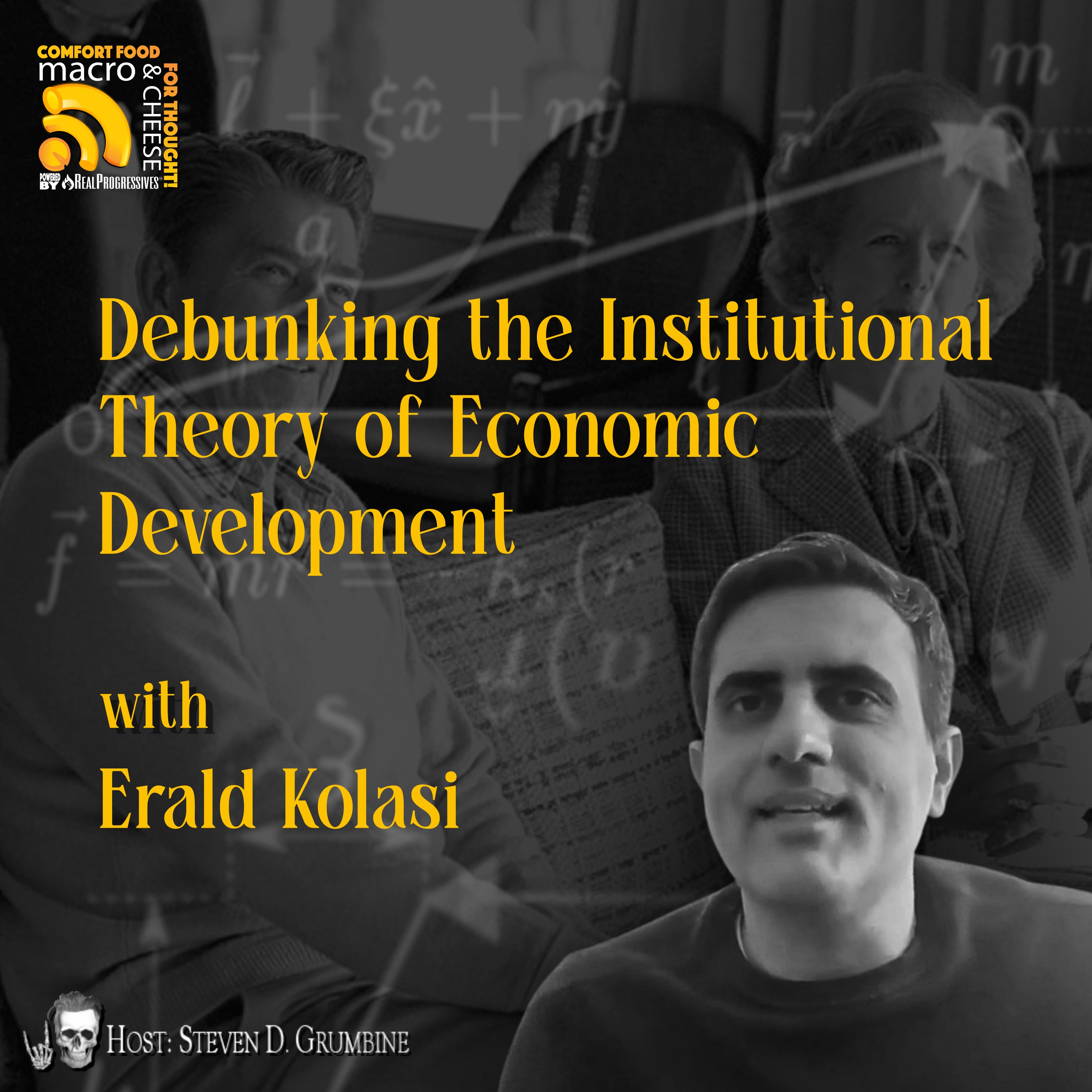





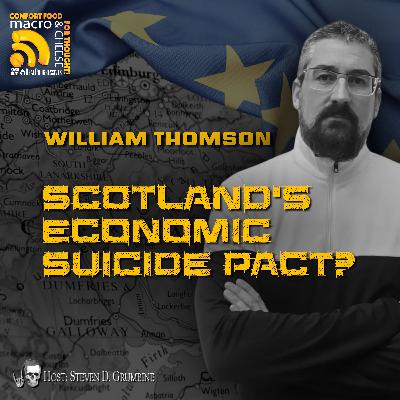
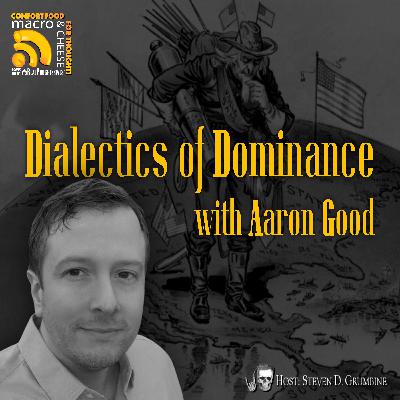
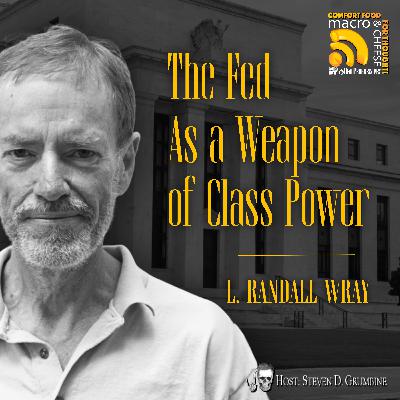
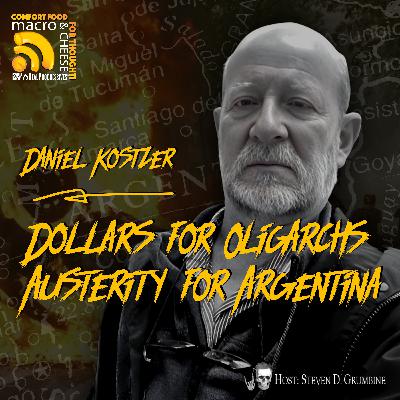

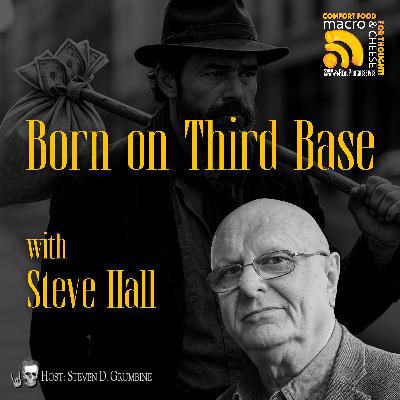
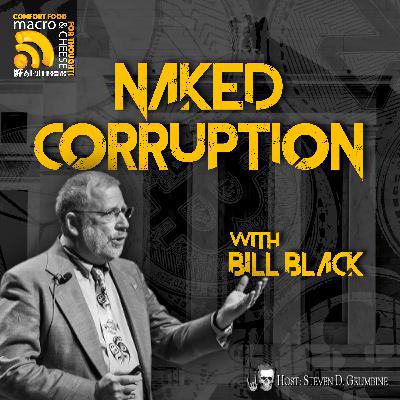


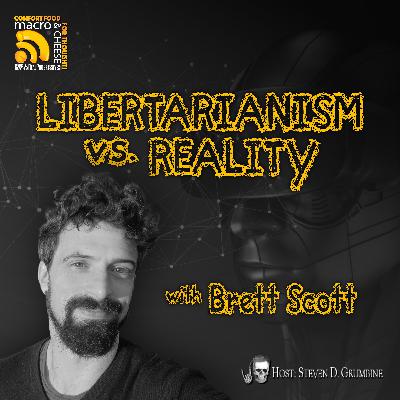
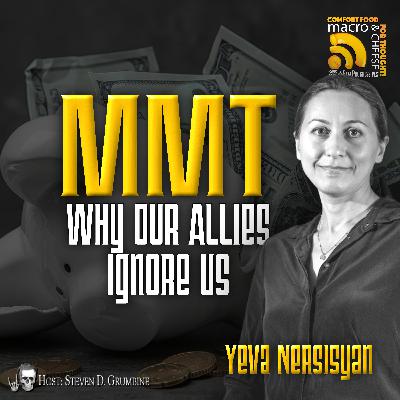



Dismissal or conspicuous omission of Trotsky's importance to the revolution is a good indication that you're an unserious flibbertigibbet who read some Grover Furr. This person's voice fits the profile.
Thanks for giving voice to radical resistance!
#Inflation is eating us alive
Insightful commentary!
Chariton is absolutely right! Unionism and organization in Progressive causes is the way forward!
The discussion regarding the profession of economics and the disappearance of the acedemic teaching of macroeconomics, IMO is another way the ruling class has rigged the system.
This is an amazing interview that I would pass on to anyone trying to figure out MMT. The basics are set in a very practical context.
People don't seem to get it that when folks loose their jobs, they can't buy "Stuff." When folks can't buy, there's no need to produce and more jobs and services are lost. Why don't folks get it???
Solutions exist. Why doesn't Congress listen????
This episode brings up points that relate to things discussed in previous interviews. Now I want to go back and listen again to Lua Yuille, Keeanga-Yamahtta Taylor, and David Freund.
Listen to a person who was there, saw the corruption and has hope that things CAN CHANGE!
dammnnnnnn just started watching.... goosebumps already! The fuckery will give you nausea --- better than any episode of Tiger King, better than any amusement park trip -- buckle up. #Covid19Happenings
Great discussion I hope folks will listen to and absorb.
great episode
Nice to have someone from the GP on.
Great podcast. :) Ty Ajamu and Steve. :)
Only we the people by the people taking this responsibility seriously will ensure Bernie”s platform because a solid foundation
Awesome podcast! Thank you!
“The truth shall set you free” MLK And as Neo said “ I am going to unplug as many as I can from the matrix”
Patrica and Steve thank you